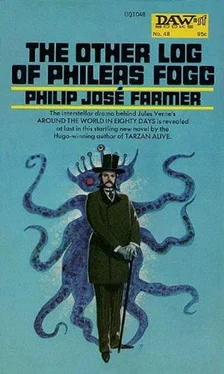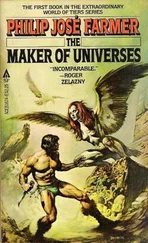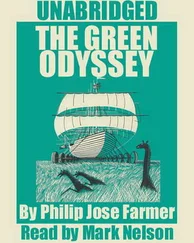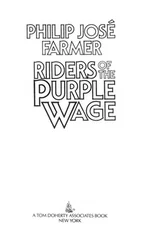Philip Farmer - The Other Log of Phileas Fogg
Здесь есть возможность читать онлайн «Philip Farmer - The Other Log of Phileas Fogg» весь текст электронной книги совершенно бесплатно (целиком полную версию без сокращений). В некоторых случаях можно слушать аудио, скачать через торрент в формате fb2 и присутствует краткое содержание. Жанр: Фантастика и фэнтези, на английском языке. Описание произведения, (предисловие) а так же отзывы посетителей доступны на портале библиотеки ЛибКат.
- Название:The Other Log of Phileas Fogg
- Автор:
- Жанр:
- Год:неизвестен
- ISBN:нет данных
- Рейтинг книги:3 / 5. Голосов: 1
-
Избранное:Добавить в избранное
- Отзывы:
-
Ваша оценка:
- 60
- 1
- 2
- 3
- 4
- 5
The Other Log of Phileas Fogg: краткое содержание, описание и аннотация
Предлагаем к чтению аннотацию, описание, краткое содержание или предисловие (зависит от того, что написал сам автор книги «The Other Log of Phileas Fogg»). Если вы не нашли необходимую информацию о книге — напишите в комментариях, мы постараемся отыскать её.
The Other Log of Phileas Fogg — читать онлайн бесплатно полную книгу (весь текст) целиком
Ниже представлен текст книги, разбитый по страницам. Система сохранения места последней прочитанной страницы, позволяет с удобством читать онлайн бесплатно книгу «The Other Log of Phileas Fogg», без необходимости каждый раз заново искать на чём Вы остановились. Поставьте закладку, и сможете в любой момент перейти на страницу, на которой закончили чтение.
Интервал:
Закладка:
Across Pall Mall at an angle was the Athenaeum Club, devoted to bringing together the practitioners of the fine arts and sciences and their eminent patrons. This is the institution called the Diogenes Club in the Sherlock Holmes stories. However, at this time, Mycroft Holmes, its future member, was only twenty-six years old and his brother Sherlock was a mere eighteen. Yet, the paths of the younger Holmes and of one of the many pedestrians on Pall Mall that day were to cross many years later.
Although Fogg seemed to look neither to left nor to right, as if he were riding a rail and did not have to steer himself, he was missing little. Thus, he saw a tall, broadshouldered gentleman of about forty years of age standing in a doorway and lighting up a cheroot. Only the keenest of observers could have noted that Fogg’s stride checked ever so slightly. And only a nearby and very perceptive person would have detected a minute paling of Mr. Fogg’s skin.
His lips opened a tiny bit, and a name breathed out.
He did not otherwise betray himself. He walked on steadily as if he were a planet in its orbit and could be perturbed by nothing less than the sun going nova.
But behind that serene face millions of microscopic novas were exploding as neuron after neuron and neural circuit after circuit lit up. Could it indeed be he ? Or had he been mistaken? After all, the man had been across the street and in the shadow of a deep doorway. The features had been indistinguishable. The physique certainly resembled the man whose name Fogg had exhaled. The safety match with which he lit his cigar could have illuminated his features in the shadow of the doorway, but the hand which held it shielded them. Nor could Fogg determine if the fellow had an unusual distance between his eyes.
Moreover, Fogg’s glance had been too brief to allow him any rechecking of his first impression. And, the further he got from the man, the less he thought that it could be he. Why would he stand where he might be seen? What purpose could he have in letting Fogg know that he was alive and shadowing him? Was it bravado? Or was he trying to stampede the unstampedable?
And how could he be alive? How had he escaped? As far as Fogg knew, he and three others were the only survivors. Still, at one time he had thought he was the only one not drowned, but he had found out later that others had had good fortune, too. The other survivors were French and Canadian and there was not much chance that they would ever see him again. To make sure that they did not recognize him if they did encounter him, he had grown his beard.
Despite an intensive investigation, no evidence had been found that anybody else had gotten away alive from the maelstrom. However, that could mean that the Capelleans had kept their secret a secret. They were very good at that.
Perhaps, Fogg thought, this was why everything was so suddenly upset, Forster ordered to an unknown destination, and Passepartout appearing with his distorter, the only one in the possession of the Eridaneans.
He walked on up the steps of the Reform Club. It was true that he had foreseen this possibility of other survivors, but he had calculated that the odds against this were so high as to make the event extremely unlikely.
But if anyone could survive, that fellow would be the one. He, Fogg, might have allowed his wishes to interfere with his mathematics.
3
The Reform Club was political in origin, being founded by the Liberals of both houses of Parliament to help push through the Reform Bill, 1830-32. This was not what we of today would regard as a democratic measure. It redistributed the seats in Parliament, giving the new middle classes of the industrial cities the representation they had lacked, and getting rid of the “rotten boroughs.” It failed to satisfy the radicals (whom we should regard as very conservative indeed by modern standards), but it was a step closer to true representative government. Why Fogg chose this club rather than another is not known. He seemed to have no interest at all in politics. At least, Verne records no opinions of his, and a diligent search has failed to find his name on any registry of voters.
The club itself was housed in a magnificent structure, the architectural style of which was pure Italian, supposedly based on the famous Farnese Palace at Rome, designed by Michelangelo. It contained six floors and one-hundred-and-thirty-four apartments. In the center was a great hall fifty-six feet by fifty feet, as high as the building itself. Adjoining the drawing room are a library and a cardroom. It was the latter that Fogg intended as his final destination.
In the meantime, he made a scheduled stop at the dining room, the nine windows of which opened onto a garden. He sat at the table which had been laid out for him, and he ate his breakfast, for which he had to give no order since it never varied.
At thirteen minutes to one, he rose and walked to the large hall. He sat down there and a servant handed him The Times. Fogg cut the pages open with a small sharp folding knife and read the paper until fifteen minutes to four o’clock. Without Fogg’s requesting it, he was handed the Standard . He then ate a dinner the menu for which deviated no more than that of his breakfast. Mr. Fogg then repaired to the washroom, an event which Verne discreetly omits to mention. Since his internal actions were as well governed as his outer, Mr. Fogg reappeared in the reading room at the scheduled time: twenty minutes before six. He sat down to read the Pall Mall, and continued to do so until half an hour had passed. An acute observer, however, would have noticed that he raised his eyes from the paper more times than usual, and he might have deduced that Mr. Fogg was looking for someone. This someone, if he appeared, caused no visible reaction in Mr. Fogg.
Apparently, whatever the signal of the 2° F. meant, events were proceeding slowly. If there was frenzy or desperation behind the plan, it was not obvious. Mr. Fogg read every word of the three publications with a remarkable swiftness. This was even more remarkable considering the lack of practice at other kinds of literature. Nobody at the club had ever seen Fogg read anything but the journals, and he certainly did not read at home since No. 7, Savile Row lacked books of any kind. And yet, he seemed to have been everywhere and to know everything about the most remote of places. From where had he gotten his knowledge?
He did not seem to be looking for anything in particular in his perusal of the papers. Yet his eyes did slow down sometimes and retrack. The delays were caused by certain items, accounts of strange happenings in every niche of the globe. They were the sort of thing put in to fill space, though certainly calculated to interest most human beings. Fogg was putting them together with other accounts in today’s papers and also with those he had read in the past. He was trying to construct a coherent picture from them. He was especially interested in the stories of weird or unusual marine phenomena. Stories about sea serpents or missing or overdue ships caught his attention. Nor did he neglect the terrestrial, especially unmotivated murders or disappearances.
At ten minutes after six, five members stopped to talk before the fireplace and rid themselves of the chilliness of the autumn evening. These were Andrew Stuart, an engineer; two bankers, Sullivan and Fallentin; a brewer, Flanagan; and a director of the Bank of England, Gauthier Ralph. Mr. Fogg was aware of their presence, but, since he was not finished reading, he did not address them.
Mr. Flanagan asked Mr. Ralph what he thought about the robbery.
Stuart answered for Ralph, stating that the Bank of England would lose its money.
Ralph replied that the bank expected to get the robber. The best of detectives had been sent to all the large ports of America and Europe, and the robber would have to be very slippery indeed to elude the hawks of the law.
Читать дальшеИнтервал:
Закладка:
Похожие книги на «The Other Log of Phileas Fogg»
Представляем Вашему вниманию похожие книги на «The Other Log of Phileas Fogg» списком для выбора. Мы отобрали схожую по названию и смыслу литературу в надежде предоставить читателям больше вариантов отыскать новые, интересные, ещё непрочитанные произведения.
Обсуждение, отзывы о книге «The Other Log of Phileas Fogg» и просто собственные мнения читателей. Оставьте ваши комментарии, напишите, что Вы думаете о произведении, его смысле или главных героях. Укажите что конкретно понравилось, а что нет, и почему Вы так считаете.












